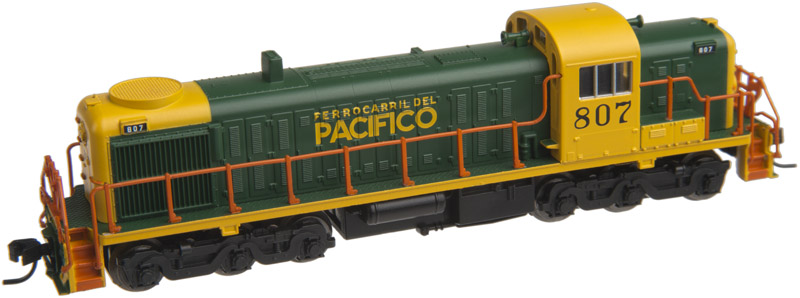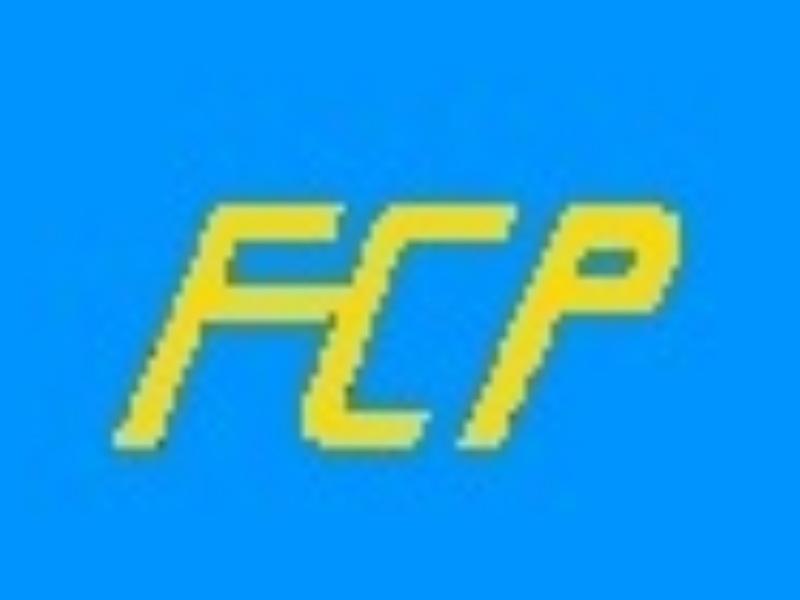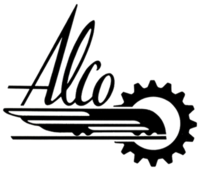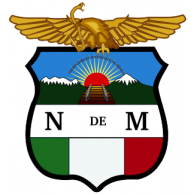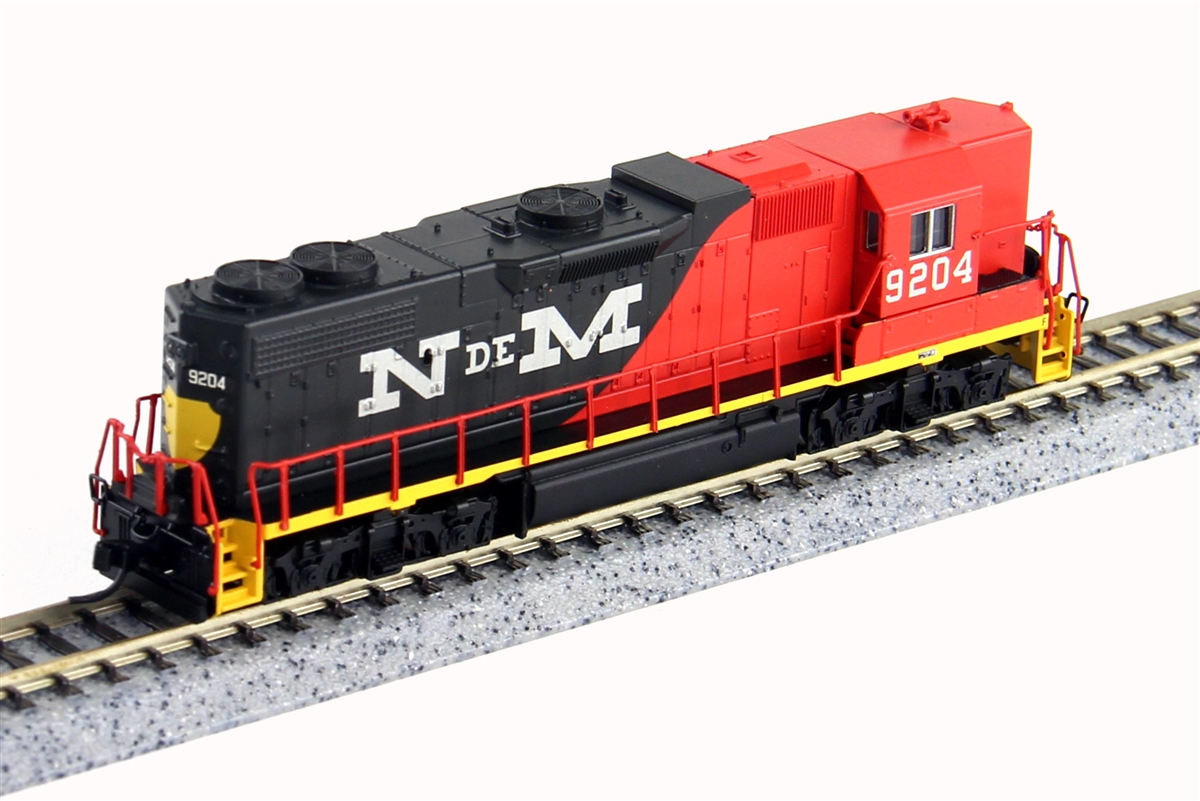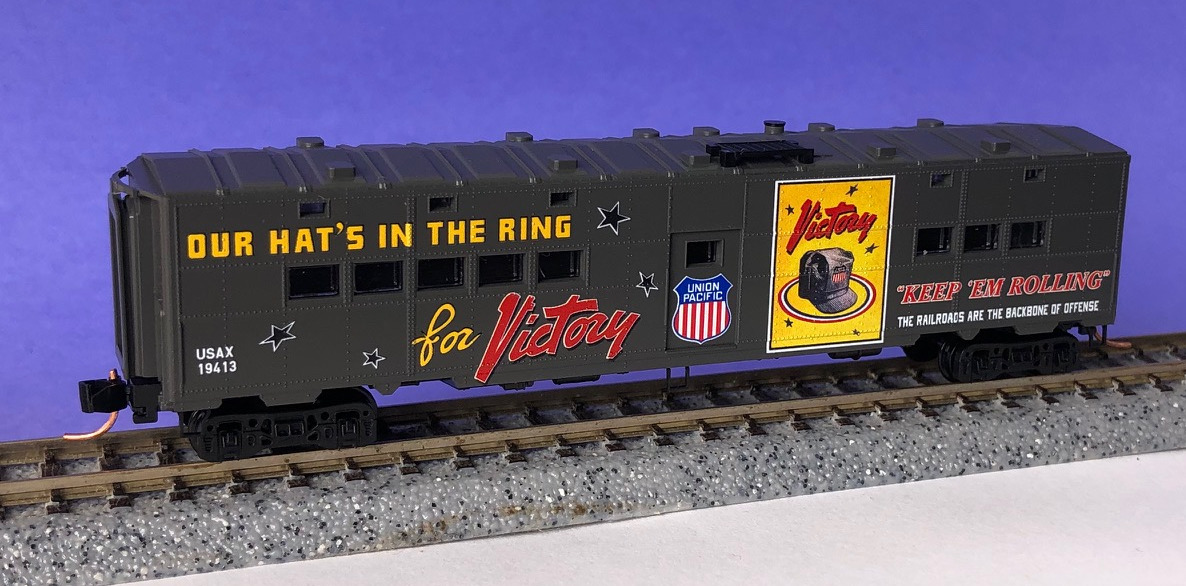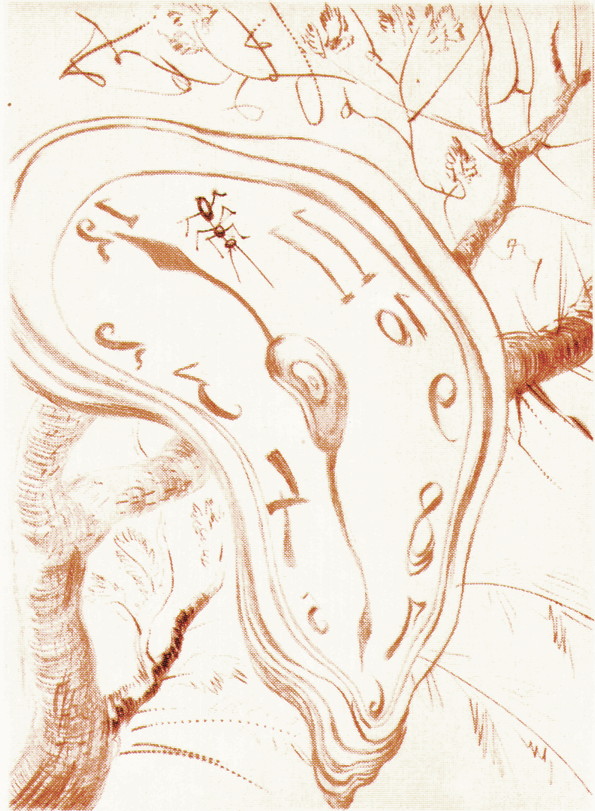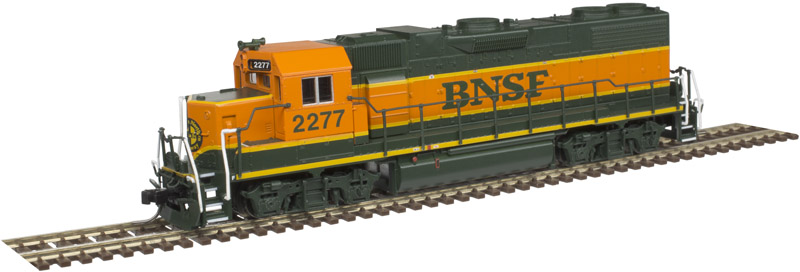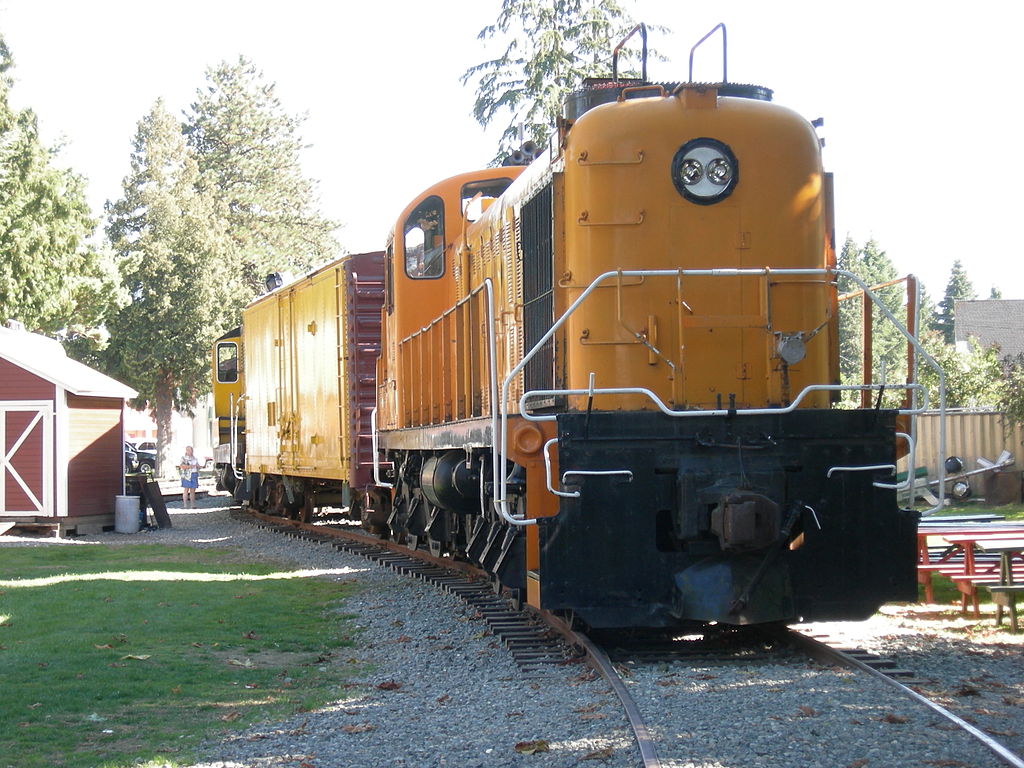Atlas - 40 000 532 - Locomotive, Diesel, Alco RSD-4 - Ferrocarril Del Pacifico - 807
Click to see the details
collector
| Stock Number | 40 000 532 |
| Original Retail Price | 119.95 |
| Brand | Atlas |
| Manufacturer | Atlas |
| Body Style | Atlas Diesel Road Switcher RSD-4/5 |
| Prototype Vehicle | Locomotive, Diesel, Alco RSD-4 (Details) |
| Road or Company Name | Ferrocarril Del Pacifico (Details) |
| Road or Reporting Number | 807 |
| Paint Color(s) | Green/Yellow |
| Coupler Type | AccuMate Magnetic Knuckle |
| Wheel Type | Chemically Blackened Metal |
| Wheel Profile | Small Flange (Low Profile) |
| DCC Readiness | Friendly |
| Release Date | 2013-01-01 |
| Item Category | Locomotives |
| Model Type | Diesel |
| Model Subtype | Alco |
| Model Variety | RSD-4/5 |
| Prototype Region | North America |
| Prototype Era | NA Era III: Transition (1939 - 1957) |
| Years Produced | 1951 - 1952 |
| Scale | 1/160 |
Model Information:
Atlas introduced the Kato-produced RS-3 in 1983. They followed up with the RSD-4/5 in 1987, also Kato-produced and sold by both Atlas and Kato under their own brand name. The models were redesigned in 1999 and production moved to China. The models were again modified in 2001 (RS-3) and 2004 (RS-4/5) and from then on featured Atlas "Slow-Speed" motors. The RS-3 and RSD-4/5 share the same internal mechanism.
The early releases were the first locomotive produced by Kato for Atlas. It was vastly superior to the earlier models produced by Roco for Atlas. The combination of the split-frame design, directional lighting and 5-pole motor with bearing blocks to hold the worm gear in place made it the first "modern" N-Scale design for a North American locomotive.
The early releases were the first locomotive produced by Kato for Atlas. It was vastly superior to the earlier models produced by Roco for Atlas. The combination of the split-frame design, directional lighting and 5-pole motor with bearing blocks to hold the worm gear in place made it the first "modern" N-Scale design for a North American locomotive.
DCC Information:
Unfortunately the one modern feature it lacks is a single-lightboard design to permit a "drop-in" decoder board installation. The split-board requires some soldering and careful installation to upgrade even the most modern edition of this locomotive to DCC. Special split decoders are available to convert these models to DCC. Some soldering required. TCS makes the 1278-CN which works pretty well.
Prototype History:
The ALCO RSD-4 was a diesel-electric locomotive of the road switcher type rated at 1,600 horsepower (1.2 MW), that rode on three-axle trucks, having an C-C wheel arrangement.
Used in much the same manner as its four-axle counterpart, the ALCO RS-3, though the six-motor design allowed better tractive effort at lower speeds. Due to the inadequate capacity of the main generator, this model was later superseded in production by the ALCO RSD-5
From Wikipedia
Used in much the same manner as its four-axle counterpart, the ALCO RS-3, though the six-motor design allowed better tractive effort at lower speeds. Due to the inadequate capacity of the main generator, this model was later superseded in production by the ALCO RSD-5
From Wikipedia
Road Name History:
FCP was formed in 1951 when Southern Pacific, fearing the changing political climate in Mexico would lead to the nationalization of their Southern Pacific of Mexico subsidiary, sold the line to the Mexican government. FCP ran from the Arizona border at Nogales south, not far from the coast to a connection with NdeM in the Guadalajara area. The line became known for moving produce on fast TOFC trains to American markets. They ran a popular passenger train from Nogales to Mexico City jointly with NdeM. In 1987, the government owned railroads of Mexico were combined and reorganized into a larger National Railways of Mexico (FNM.)
Brand/Importer Information:
In 1924 Stephan Schaffan, Sr. founded the Atlas Tool Company in Newark, New Jersey. In 1933 his son, Stephan Schaffan, Jr., came to work for his father at the age of sixteen. Steve Jr. built model airplanes as a hobby and frequented a local hobby shop. Being an enterprising young man, he would often ask the owner if there was anything he could do to earn some extra spending money. Tired of listening to his requests, the hobby-store owner threw some model railroad track parts his way and said, "Here, see if you can improve on this".
In those days, railroad modelers had to assemble and build everything from scratch. Steve Jr. created a "switch kit" which sold so well, that the entire family worked on them in the basement at night, while doing business as usual in the machine shop during the day.
Subsequently, Steve Jr. engineered the stapling of rail to fiber track, along with inventing the first practical rail joiner and pre-assembled turnouts and flexible track. All of these products, and more, helped to popularize model railroading and assisted in the creation of a mass-market hobby. The budding entrepreneur quickly outgrew the limitations of a basement and small garage operation. Realizing they could actually make a living selling track and related products, Steve and his father had the first factory built in Hillside, New Jersey at 413 Florence Avenue in 1947. On September 30, 1949, the Atlas Tool Company was officially incorporated as a New Jersey company.
In 1985, Steve was honored posthumously for his inventions by the Model Railroad Industry Association and was inducted into the Model Railroad Industry Hall of Fame in Baltimore, Maryland. In addition, Steve was nominated and entered into the National Model Railroad Association Pioneers of Model Railroading in 1995.
In the early 1990s, the Atlas Tool Company changed its name to Atlas Model Railroad Company, Inc.
In those days, railroad modelers had to assemble and build everything from scratch. Steve Jr. created a "switch kit" which sold so well, that the entire family worked on them in the basement at night, while doing business as usual in the machine shop during the day.
Subsequently, Steve Jr. engineered the stapling of rail to fiber track, along with inventing the first practical rail joiner and pre-assembled turnouts and flexible track. All of these products, and more, helped to popularize model railroading and assisted in the creation of a mass-market hobby. The budding entrepreneur quickly outgrew the limitations of a basement and small garage operation. Realizing they could actually make a living selling track and related products, Steve and his father had the first factory built in Hillside, New Jersey at 413 Florence Avenue in 1947. On September 30, 1949, the Atlas Tool Company was officially incorporated as a New Jersey company.
In 1985, Steve was honored posthumously for his inventions by the Model Railroad Industry Association and was inducted into the Model Railroad Industry Hall of Fame in Baltimore, Maryland. In addition, Steve was nominated and entered into the National Model Railroad Association Pioneers of Model Railroading in 1995.
In the early 1990s, the Atlas Tool Company changed its name to Atlas Model Railroad Company, Inc.
Item created by: Bryan
on 2016-06-12 07:14:19
Last edited by: gdm on 2018-06-19 08:52:15
If you see errors or missing data in this entry, please feel free to log in and edit it. Anyone with a Gmail account can log in instantly.
Last edited by: gdm on 2018-06-19 08:52:15
If you see errors or missing data in this entry, please feel free to log in and edit it. Anyone with a Gmail account can log in instantly.


